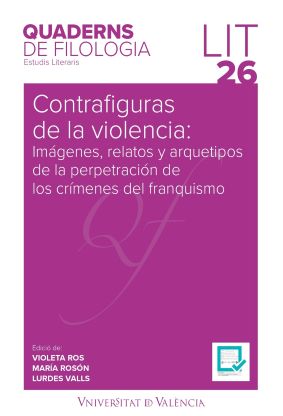Victims and perpetrators in Spanish memory literature, from the Spanish Civil War to the present: the case of Dicen, by Susana Sánchez Arins
DOI:
https://doi.org/10.7203/qdfed.26.22096Keywords:
victim, perpetrator, memory literature, Arturo Barea, Susana Sánchez Arins. Abstract
Abstract
The article exposes how, since the Spanish Civil War, some authors conceived their literature as a way of vindicating the legacy of the victims of totalitarian violence. Starting from this premise, it is reflected, in the first place, how the reiteration of procedures focused on recovering the voices of the reprisals has had as an indirect consequence the blurring of the figure of the perpetrator in Spanish literature. Secondly, the paper reflects on the characteristics of novels such as Dicen, by Susana Sánchez Arins, which try to subvert this panorama.
 Downloads
Downloads
Downloads
Published
How to Cite
-
Abstract1348
-
PDF (Español)905
Issue
Section
License
 Este obra está bajo una licencia de Creative Commons Reconocimiento-NoComercial-SinObraDerivada 4.0 Internacional.
Este obra está bajo una licencia de Creative Commons Reconocimiento-NoComercial-SinObraDerivada 4.0 Internacional.
Authors who publish with this journal agree to the following terms:
- Authors retain copyright and grant the journal right of first publication with the work simultaneously licensed under a Creative Commons Attribution License that allows others to share the work with an acknowledgement of the work's authorship and initial publication in this journal.
- Authors are able to enter into separate, additional contractual arrangements for the non-exclusive distribution of the journal's published version of the work (e.g., post it to an institutional repository or publish it in a book), with an acknowledgement of its initial publication in this journal.
- Authors are permitted and encouraged to post their work online (e.g., in institutional repositories or on their website) prior to and during the submission process, as it can lead to productive exchanges, as well as earlier and greater citation of published work (See The Effect of Open Access).




